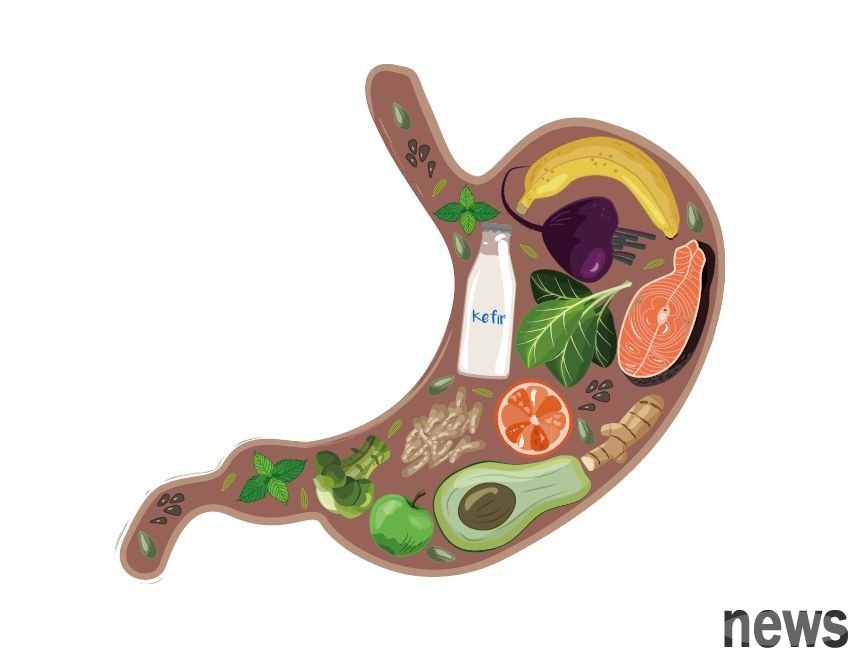Eating is related to health and survival. Nutritionists and geriatric doctors recommend food that you must eat after your age of 50

After entering the age of 50, do you feel that your body’s reaction to food is very different from the past? In the past, a bowl of ice cream every day was not a problem, but now it may make you feel unsuitable and even affect your health. As people grow older and their nutritional needs change, the English saying "you are what you eat" is more important than ever before. After menopause, estrogen in women decreases, leading to bone loss and increasing bone relaxation risks, so it is more necessary to get calcified food. Regardless of gender, age increases, which will weaken the body's ability to produce insulin, and reduce blood sugar control, increasing the risk of type 2 diabetes. After the age of 60, the New Chen-Cheng Xie slows down, and high-heat foods are more likely to cause weight increase. Eating right is not just about physical condition, but about health and survival.
Although eating the right food can extend health problems related to age. The following are unanimous recommendations from American nutritionists and geriatric doctors, and foods that should be included in the purchase list after the age of 50.
1. Vanilla food: Basil, red, rosemaryToo much salt can cause hypertension. Nina Blachman, an elderly doctor at NYU Langone Health Center, suggested that as much as possible, she encouraged everyone to use vanilla to scent. Basil, red, rosemary, etc. can provide a rich aroma, reducing salt while not reducing the flavor.
2. Bean type: 黄花的花的片, etc.registered nutritionist Tara Tomaino pointed out that whether it is canned or dried bean type, they are ideal choices for people over the age of 50. "Beans contain rich dietary fiber and plant-based proteins, which help cardiovascular health, blood sugar stability and weight control." If you choose canned beans, remember to wash filters to remove excess flakes. It is recommended to eat half a cup every day, which can be added to salads or soups.
3. Cottage CheeseCottage Cheese is a low-fat cheese that has become red again in recent years and is a nutritional product suitable for mature people. "This is a high-protein food that is suitable for a meal or snack." Tomaino said it can be enjoyed with fruits, or made into sauce with vegetables. If you are worried about painstaking problems, remember to choose a low-pin or saltless version.
4. Deep green leaf vegetables: spinach, mustard greens, and sweet blue vegetablesThese vegetables are rich in dietary fiber, iron, glutinous, decoction and calcinia, and are the key nutrients for protecting the heart. They have low carbohydrate content and heat, especially suitable for those who control blood sugar and weight.
5. Berry types: Strawberries, blueberries, and blackberries.Berries are rich in antioxidants, which can reduce inflammation and have anti-cancer potential. They are also high-quality fruits that help stabilize blood sugar. It is recommended to choose organic berries, whether fresh or cold. It can be eaten directly or added to ginger, gua, salad.
6. FishFish is an excellent source of Omega-3 fatty acids, which are important for heart and brain health. Tomaino suggests: "Fished fish are less fat than red meat, and are a source of protein that should be taken at least once a week." It can be simply roasted and paired with vegetables to make a quick nutritious meal.
7. Fruits and seeds: almonds, walnuts, flax seeds, chia seedsThis type of food is rich in healthy fats, fiber and key nutrients. Nutritionist Marine Melamed pointed out: "They help maintain good calcisterone values, promote digestive health, and provide a source of plant-based protein."
8. Quality protein: Chicken, eggs, tofu, beansMelamed said that lean meat and plant-based protein can maintain muscle mass, strengthen immunity and promote wound fit. Avoid meat-rich parts, choose chicken, eggs, or eat more plant-based proteins such as tofu and beans.
9. All grains: quinoa, brown rice, whole grains, and oatmealAll grains are not only rich in dietary fiber and complex carbohydrates, but also stabilize blood sugar, increase energy, and promote kidney health. Melamed said these foods help reduce tropopathy and diabetes risks.
Responsible editor: Gu Zihuan




